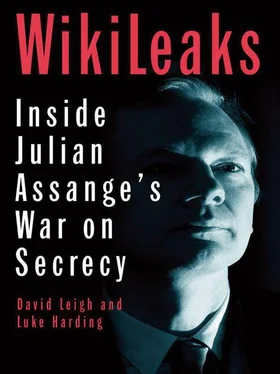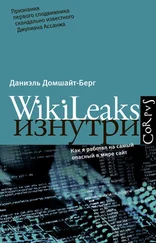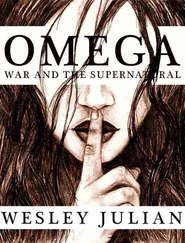Harding, Luke - WikiLeaks - Inside Julian Assange's War on Secrecy
Здесь есть возможность читать онлайн «Harding, Luke - WikiLeaks - Inside Julian Assange's War on Secrecy» весь текст электронной книги совершенно бесплатно (целиком полную версию без сокращений). В некоторых случаях можно слушать аудио, скачать через торрент в формате fb2 и присутствует краткое содержание. Жанр: Старинная литература, на английском языке. Описание произведения, (предисловие) а так же отзывы посетителей доступны на портале библиотеки ЛибКат.
- Название:WikiLeaks: Inside Julian Assange's War on Secrecy
- Автор:
- Жанр:
- Год:неизвестен
- ISBN:нет данных
- Рейтинг книги:3 / 5. Голосов: 1
-
Избранное:Добавить в избранное
- Отзывы:
-
Ваша оценка:
- 60
- 1
- 2
- 3
- 4
- 5
WikiLeaks: Inside Julian Assange's War on Secrecy: краткое содержание, описание и аннотация
Предлагаем к чтению аннотацию, описание, краткое содержание или предисловие (зависит от того, что написал сам автор книги «WikiLeaks: Inside Julian Assange's War on Secrecy»). Если вы не нашли необходимую информацию о книге — напишите в комментариях, мы постараемся отыскать её.
WikiLeaks: Inside Julian Assange's War on Secrecy — читать онлайн бесплатно полную книгу (весь текст) целиком
Ниже представлен текст книги, разбитый по страницам. Система сохранения места последней прочитанной страницы, позволяет с удобством читать онлайн бесплатно книгу «WikiLeaks: Inside Julian Assange's War on Secrecy», без необходимости каждый раз заново искать на чём Вы остановились. Поставьте закладку, и сможете в любой момент перейти на страницу, на которой закончили чтение.
Интервал:
Закладка:
It is common ground that Assange at first refused to take an HIV test. Had he agreed, it seems unlikely that the subsequent legal dramas would have unfolded. Katrin’s younger brother says Assange had a conversation with his sister about it: “She asked Julian if he would get tested, and he said he didn’t have time.” Weiss was allegedly told that she would just have to take his word that he had no diseases. Assange’s lawyers dispute that. According to them, he said: “I can do a blood test but I don’t want to be blackmailed … I’d prefer to do it out of goodwill.”
Böstrom told the Guardian subsequently: “I was a kind of middleman – calling her, calling Julian. It went on for hours.” Late on the Friday afternoon, Assange finally agreed to take a test. But it was too late. The clinics had closed for the weekend. Braun phoned Böstrom to say that they have been to the police, who say they cannot simply tell Assange to take a test. The police insist that their statements must be passed to the duty prosecutor, and a call was put out for the arrest of an accused foreigner, Julian Assange.
That night, the story about the allegations made against the man behind WikiLeaks leaked to the Swedish tabloid newspaper Expressen . Who leaked it? We don’t know. The prosecutor, who later got into trouble for confirming the allegation, says it was put to her by the newspaper, which had apparently been tipped off.
As a result of this hectic Friday, when the following morning dawned, Saturday 21 August, allegations that Assange was wanted by police for “rape” had begun to be sprayed all over the world. In the electronic global village, anyone can become famous within 15 minutes. Assange was in an unexpected predicament and his conviction that he had not “raped” anyone is perhaps understandable. But Assange’s new status as an international celebrity, as “the world’s most famous man”, was proving to be a cruelly double-edged sword. Journalists were demanding a reaction.
At 9.15am, he tweeted under the WikiLeaks name: “We were warned to expect ‘dirty tricks’. Now we have the first one.” The following morning, he tweeted: “Reminder: US intelligence planned to destroy WikiLeaks as far back as 2008.” In an interview, the Swedish tabloid Aftonbladet asked if he had had sex with his two accusers. He replied: “Their identities have been made anonymous so even I have no idea who they are.” He added: “We have been warned that the Pentagon, for example, is thinking of deploying dirty tricks to ruin us.” Yet Assange must have realised which two women had been threatening to report him to the police.
This line of attack proved unwise. He must have known his statements were, at best, highly misleading. His conspiracy theory of a Pentagon “honeytrap” gave a hostage to fortune and it also appears to have infuriated the two women. The Assange interview in Aftonbladet was published on 22 August. When it appeared, Weiss’s friend Maria told police, “Katrin was upset by the fuss, and very angry with Julian.” Sonja, too, seemed exasperated, telling Aftonbladet : “The charges are of course not orchestrated either by the Pentagon or anyone else. The responsibility for what happened to me and the other girl lies with a man who has a warped attitude to women, and a problem with taking ‘no’ for an answer.” She added: “He is not violent and I do not feel threatened by him.”
It took four months of stonewalling before Assange would accept in public that there was no evidence of a “honeytrap”. His lawyer, Mark Stephens, who had been using the phrase, had been misquoted, Assange would finally explain to the BBC’s Today programme on 21 December, and “that type of classic Russian, Moscow thing … is not probable”. While still claiming that “powerful interests” could have pushed along the smears, he did at last concede: “That doesn’t mean they got in there at the very beginning and fabricated them.”
What appeared to be Plan B came next: depict the women’s complaints as driven, if not by the CIA, then at least by a fit of man-hating. Once ensconced back in London, Assange spoke dolefully to contacts about the strong approach Swedish officialdom took to sex allegations: “Sweden is the Saudi Arabia of fundamentalist feminism,” he complained to friends. “One of the women has written many articles on taking revenge against men for infidelity, and is a notorious radical feminist,” he told the London Times . His lawyers stirred into this conspiracy mix some unsubstantiated hints of financial greed: “Text messages from them … speak of revenge and of the opportunity to make lots of money.”
Assange’s money allegations link significantly to the contents of one official witness statement from Weiss’s friend Maria, which may offer a more innocent explanation: “She remembered them talking about going to [the rival tabloid] Expressen , because Julian had spoken to Aftonbladet himself. But this was just something they said, and had no intention of doing. Maria said Katrin had been contacted by an American newspaper and they had joked that she should get well paid.” None of them ever did, apparently, sell their story to anyone. In any case, these conversations came after the women had already been to the police.
Assange then shifted to what appeared to be Plan C. This was to characterise the complaining women as feather-brained types who “got into a tizzy” and were “bamboozled”: “The suggestion is they went to the police for advice and they did not want to make a complaint. What they say is that they found out they were mutual lovers of mine, and they had unprotected sex, and they got into a tizzy about whether there was a possibility of sexually transmitted diseases, and they went to the police to have a test … A ridiculous thing to go to the police about,” he told Today . “One of the witnesses, one of the friends of one of those women, she says that one of the women states that she was bamboozled into this by police and others. These women may be victims in this process.”
Swedish prosecutors were later to be criticised for a clumsy, or even sinister, handling of the case. A duty prosecutor ordered an arrest that same Friday night. Over the weekend, senior prosecutor Eva Finne, in Stockholm, withdrew the “rape” accusations involving both women, to be replaced on 24 August with an investigation into a less serious and non-arrestable charge equivalent to “sexual harassment”, confined solely to the case of Sonja Braun. On 30 August, therefore, 10 days after the storm broke, Assange voluntarily turned up for a formal interview with the police, to relive his short and ultimately calamitous spell as Braun’s house-guest.
Present were a detective, Mats Gehlin from the Klara police station family violence unit, and a lawyer.
Assange: Between the 13th and 14th August, I, as you put it, deliberately tore a condom during intercourse?
Police: How do you react to that?
Assange: It’s not true.
He agreed that something had been said at the time, the police account notes. “Sonja looked at the sheet and saw that it was wet and said, ‘Look at that,’ and Julian answered, ‘It must be you’ … Julian just thought she was pointing to it as an indication of how loving the sex had been although she spoke as if it came from him … Then they didn’t discuss it any more.” He accepted there was no more intercourse all week after that event “but there were other sexual acts”.
He told the interrogators that Braun only challenged him at the very end of the week he spent at her flat: “She accused me of various things… many of which were false … That I took the condom off during sex. It was the first I had heard of it.” Her friend Klara (not her real name) had also been in contact and Assange had been arranging to meet her on the following day to discuss what he had heard were “incredible lies” being told about him. He did not consider that Braun was planning to make any formal complaint and was “really surprised” to find she had been to a hospital and there was talk of DNA and the police. “I expected the whole thing to be over until I heard the news from Expressen .”
Читать дальшеИнтервал:
Закладка:
Похожие книги на «WikiLeaks: Inside Julian Assange's War on Secrecy»
Представляем Вашему вниманию похожие книги на «WikiLeaks: Inside Julian Assange's War on Secrecy» списком для выбора. Мы отобрали схожую по названию и смыслу литературу в надежде предоставить читателям больше вариантов отыскать новые, интересные, ещё непрочитанные произведения.
Обсуждение, отзывы о книге «WikiLeaks: Inside Julian Assange's War on Secrecy» и просто собственные мнения читателей. Оставьте ваши комментарии, напишите, что Вы думаете о произведении, его смысле или главных героях. Укажите что конкретно понравилось, а что нет, и почему Вы так считаете.












